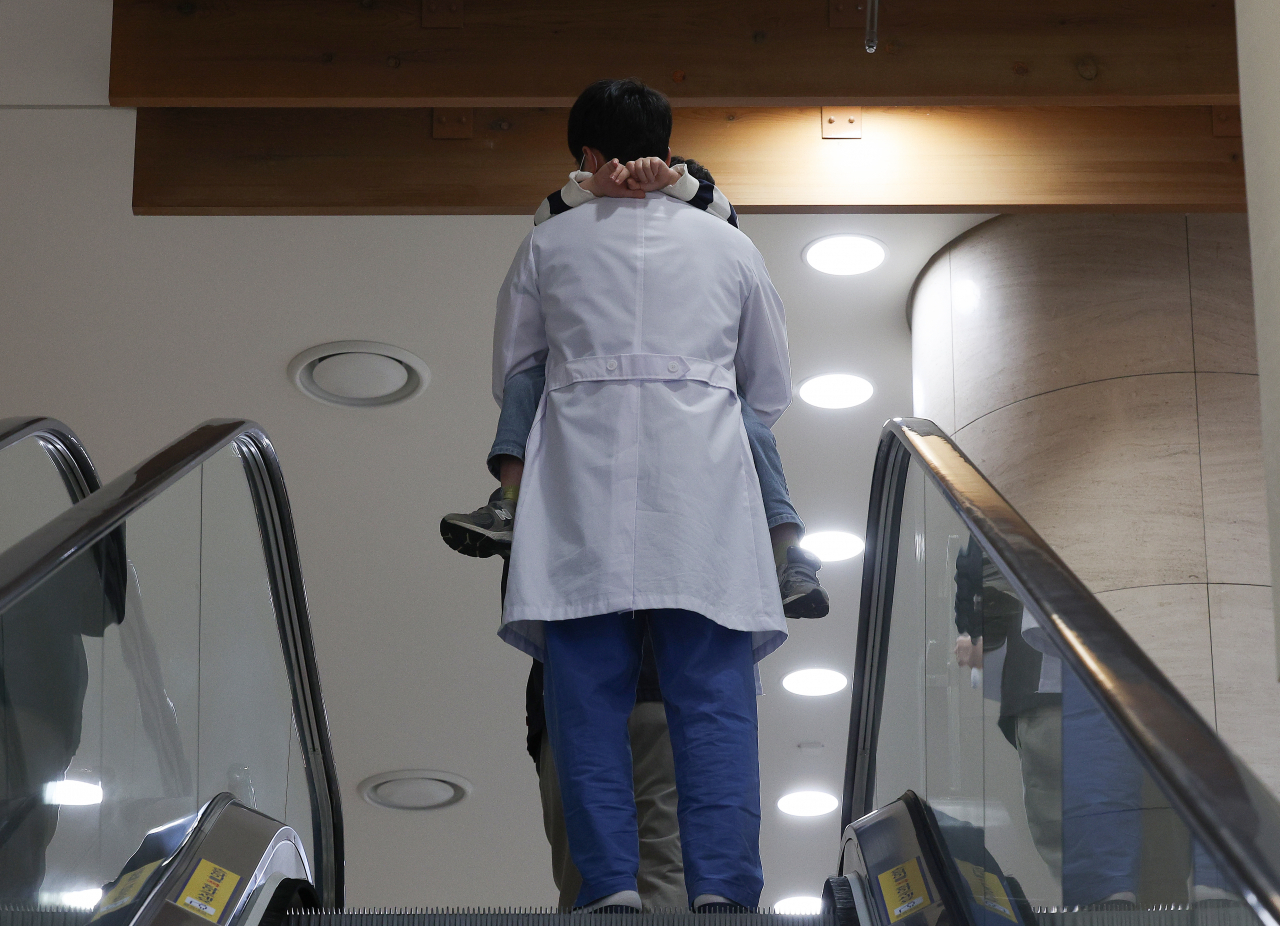 |
A medical worker goes up the escalator holding a child (Yonhap) |
Private practitioners nationwide are mulling whether to reduce night services and weekend openings in protest against the government’s medical reform policies.
Kim Dong-seok, an obstetrician who heads the Korean Medical Practitioners Association, a group representing private physicians, said during a spring medical academic conference Sunday afternoon that private medical practices are considering taking action to support junior doctors and medical professors’ walkout by shortening their work hours.
“Private practitioners are thinking about working 40 hours a week for five days without providing additional medical services on Saturdays or late at night,” Kim said.
“There’s this sense of an atmosphere (at the moment) where (independent doctors) can’t just sit and do nothing while medical professors say they will leave hospitals, so we can’t stay idle. It’s not like we have set an internal guideline. Private doctors will voluntarily make their own decision,” he said.
If self-employed doctors decide to cut down working hours, it will likely disrupt the continuity of patient care, leading to more overcrowding and longer wait times in hospitals.
Working hours for self-employed doctors are not regulated by the Health Ministry, which means the doctors have control over how many and what hours they work, unlike doctors employed at general hospitals.
Also, the ministry does not mandate that individual clinics provide medical services during the night or holidays. If private physicians choose to open their offices, the ministry provides additional medical fees as compensation.
Kim, however, said that decisions have yet to be made at the association level, adding that it is not reviewing collective closure at this point.
On a separate note, the private doctors’ group said it would also review ways to help junior doctors who left their workplaces find work. It did not provide further information on how it would do so.
Kim has strongly opposed the hike in medical school enrollment quota, calling it a “political policy.” He also warned that the government must be “held accountable for standing up to the medical circle’s opposition.”
“The government is pushing to allocate 2,000 additional places without concrete implementation plans,” Kim pointed out.
He also demanded that the government immediately disclose the detailed plans for preparing for the planned hike, such as plans to hire more medical professors and the budget for additional students.
Jang Hyun-jae, vice chair of general affairs at the KMPA, said during the same event that the government should come to the negotiation table to “find the middle ground” with doctors. He added that the three involved parties -- the public, the medical community and the government -- have been “suffering greatly” from the current situation.
Meanwhile, Bang Jae-seung, who heads the emergency committee of medical school professors, apologized Monday in an interview with CBS “for causing inconvenience in medical care” as medical professors have decided to tender their resignations starting March 25.
“To those who have come (to hospitals) with their ailing bodies or accompanied their sick family members, I sincerely apologize for the inconvenience caused to your treatment and for making you anxious,” Bang said.
“I forgot that doctors don’t exist without the people. ... But submitting resignations is a last resort for professors to prevent health care crisis from happening,” he added.







![[Weekender] Korea's traditional sauce culture gains global recognition](http://res.heraldm.com/phpwas/restmb_idxmake.php?idx=644&simg=/content/image/2024/11/21/20241121050153_0.jpg)